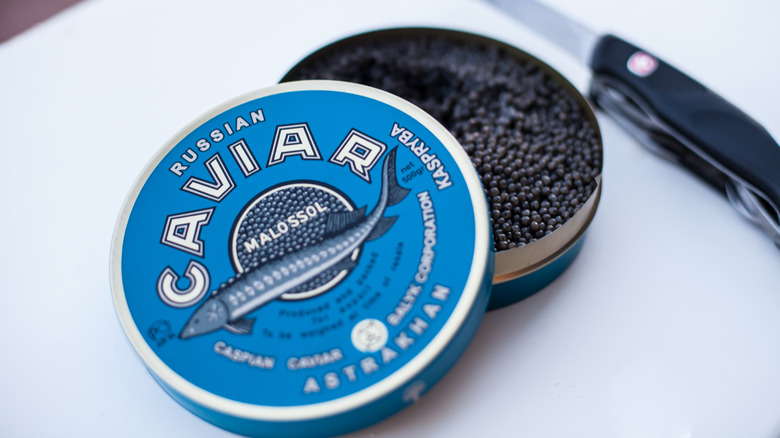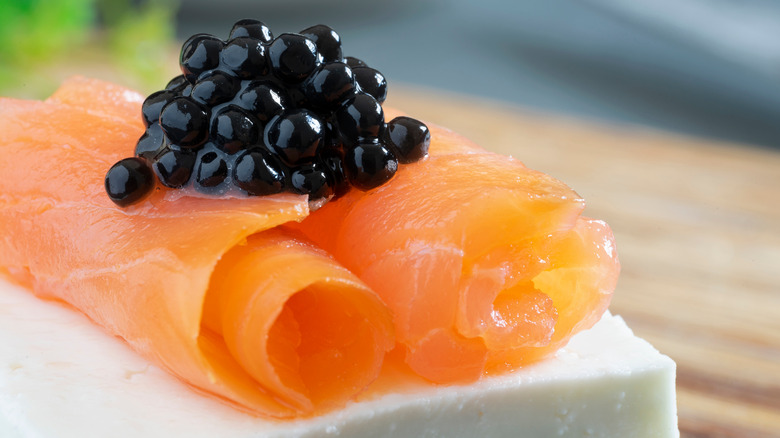Why Beluga Caviar Is Almost Impossible To Find In The US
Few food items are as avidly sought after as Beluga caviar. Of course, the reason this variety of caviar is in such demand and is sold at such exorbitantly high prices – $15,000 per pound or more, according to Imperia Caviar — is directly tied to its scarcity factor. Freshwater Beluga sturgeon are the fish whose eggs (roe) are salt-cured to make this highly prized caviar, and there simply aren't many left. A 2007 study published in the Journal of Natural Resources and Life Sciences Education (JNRLSE) noted that the population of Beluga sturgeon had decreased by 90% in only 20 years.
Although these remarkable fish have been around for over 100 million years, there have never been fewer of them than there are now. Overfishing, naturally, is a prime reason, although damming and habitat degradation have also played a part in the Beluga's alarmingly diminished numbers. In 2010, the International Union for Conservation of Nature declared that the Beluga sturgeon had not only achieved critically endangered status on its "Red List of Threatened Species" but was in danger of extinction.
There are reasons for optimism, however. In 2020, the World Wide Fund for Nature reported that 7,000 tank-raised Belugas had been reintroduced into the Danube River. The Danube flows into the Black Sea, which like the Caspian Sea, is a traditional home for the Beluga sturgeon, per JNRLSE. An American-based Beluga farm is also contributing to the repopulation cause, observes Business Insider.
Where to buy Beluga caviar in America
The importation of Beluga caviar became illegal in the U.S. in 2005, according to Imperia Caviar. There is an exception to this law, however. In 2017, the U.S. Fish and Wildlife Service issued a special permit to Sturgeon Aquafarms in Bascom, Florida, allowing it to harvest Beluga caviar from the sturgeon raised on its fish farm. This permit is the only one of its kind, which means Sturgeon Aquafarms is now the only place authorized to farm-grow caviar in America. Fish farm owners Mark Zaslavsky and Mark Gelman also founded Marky's Caviar, the only retail source for Beluga caviar in the U.S., notes The Manual.
How did these two men establish a Beluga caviar monopoly in the states? The answer is timing and sustainability commitments. The first Marky's location in Miami was established in 1983, long before the 2005 Beluga caviar ban. Zaslavsky also imported Beluga sturgeon to the aquafarm for breeding purposes before the ban took effect, observes the Robb Report. So not only did their operations predate the importation ban, but Sturgeon Aquafarms is also contributing heavily to Beluga sturgeon repopulation efforts in the Caspian Sea, with over 160,000 fertilized eggs already donated for that cause, per a press release. So yes, it is possible to buy Beluga caviar in the U.S., but only at Marky's, where it sells for $830 an ounce.

